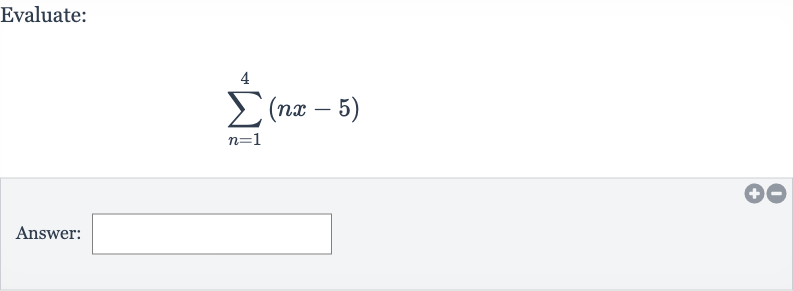AI tutor
Full solution
Q. Evaluate:Answer:
- Understand the expression: Understand the expressionThe expression means we need to calculate the sum of the terms for each integer value of from to .
- Calculate for : Calculate the term for For , the term is .
- Calculate for : Calculate the term for For , the term is .
- Calculate for : Calculate the term for For , the term is .
- Calculate for : Calculate the term for For , the term is .
- Add all terms: Add all the terms togetherNow we add all the terms from to :
- Combine like terms: Combine like termsCombine the terms and the constant terms separately:
- Simplify the expression: Simplify the expression Simplify the terms and the constant terms:
More problems from Evaluate rational expressions II
QuestionGet tutor help

